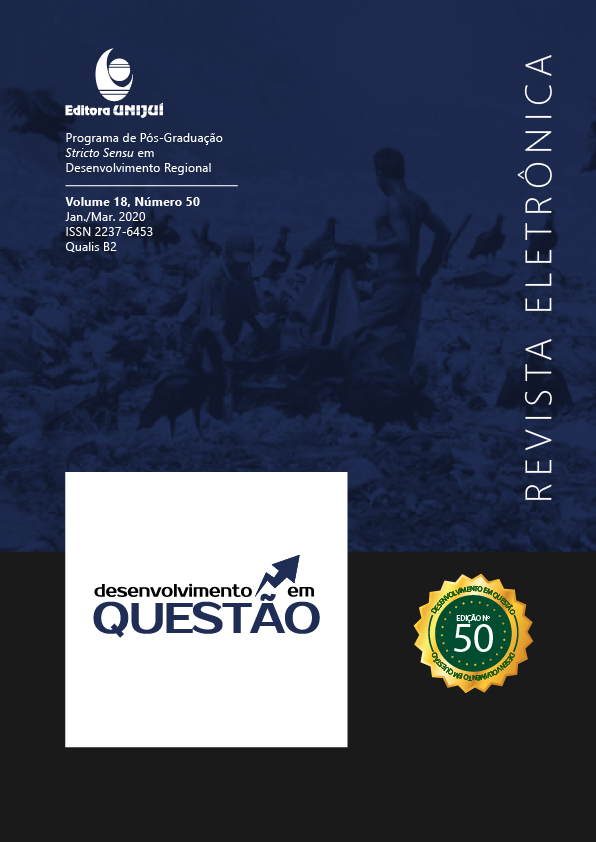The Main Evidences about the Concepts of Urban Logistics: a bibliometric study
DOI:
https://doi.org/10.21527/2237-6453.2020.50.217-233Keywords:
Logistics; Urban Logistics; Distribution logistics; Transport of freight.Abstract
The evolution of cities has changed the transport and cargo distribution systems, causing mobility and logistics problems and requiring the improvement of logistics and transport operations. This article development out a bibliometric study on the main evidence related to the themes of Urban Logistics and Logistics at a global level. The data were collected in the Web of Science database of the Institute for Scientific Information, using as keywords the terms "Logistic" and "Urban Logist" and; delimiting the search from 2008 to 2017. The publications were analyzed for the possibility of being a "Hot Topic", according to the Banks methodology (2006). Most of the publications are in the English language, concentrating on the USA and China, with Brazil being the seventh country with the largest publication. The largest publications were in the areas of Occupational Health, Public Environment and Transport, particularly in the last three years. The theme is recent and incipient in Brazil. Worldwide, it is considered a "Hot Topic" in the following areas: social, economic, environmental, management, international logistics and sustainability, and also, as with the possibility of becoming a "Hot Topic" for others, such as operations and engineering, the latter is an important area for future studies.
Downloads
Published
How to Cite
Issue
Section
License
By publishing in Revista Desenvolvimento em Questão, authors agree to the following terms:
All works are published under the Creative Commons Attribution 4.0 International License (CC BY 4.0), which allows:
Sharing — to copy and redistribute the material in any medium or format;
Adaptation — to remix, transform, and build upon the material for any purpose, even commercially.
These permissions are irrevocable, provided that the following terms are respected:
Attribution — authors must be properly credited, a link to the license must be provided, and any changes made must be indicated.
No additional restrictions — no legal or technological measures may be applied that legally restrict others from doing anything the license permits.
Notices:
The license does not apply to elements that are in the public domain or covered by legal exceptions.
The license does not grant all necessary rights for specific uses (e.g., image rights, privacy, or moral rights).
The journal is not responsible for the opinions expressed in the articles, which are the sole responsibility of the authors. The Editor, with the support of the Editorial Board, reserves the right to suggest or request modifications when necessary.
Only original scientific articles presenting research results of interest that have not been previously published or simultaneously submitted to another journal with the same purpose will be accepted.
Mentions of trademarks or specific products are intended solely for identification purposes and do not imply any promotional relationship by the authors or the journal.
License Agreement (for articles published from 2025 onward): Authors retain the copyright to their article and grant Revista Desenvolvimento em Questão the right of first publication.











